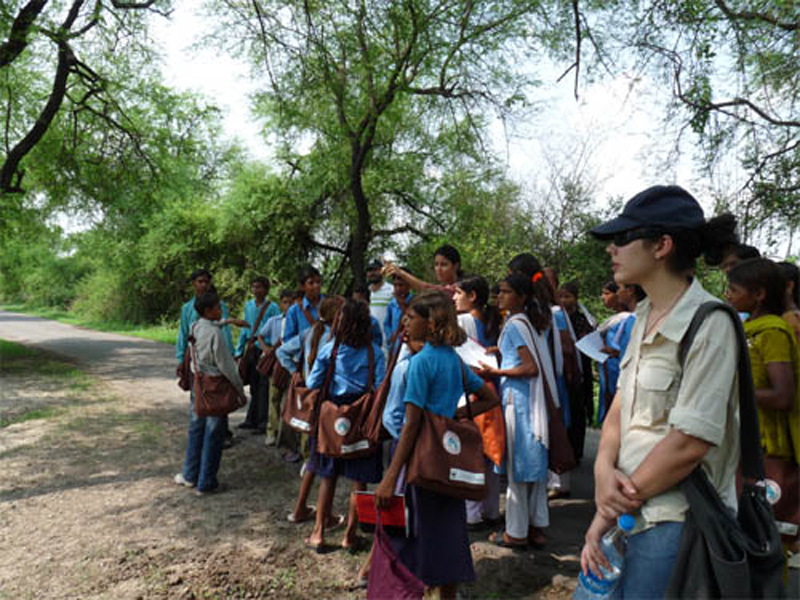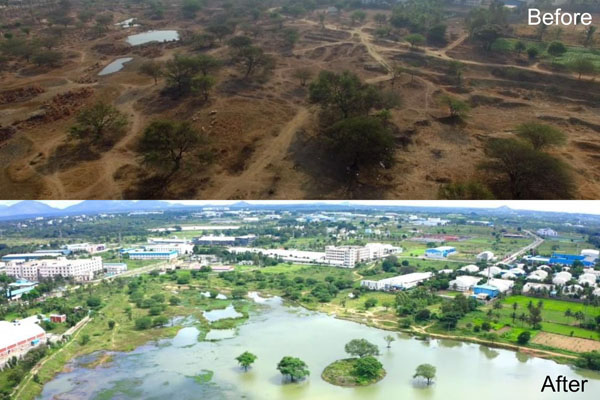 © WWF-India
© WWF-India
WETLAND MITRAS
People living along the wetlands, government departments, corporate houses, schools and universities, and many others who realise their stakes and role in wetland rejuvenation are identified as agents of change. Wetland Mitras receive adequate training on wetland rejuvenation and contribute to its recovery.
 © WWF-India
© WWF-India
WATER SCHOOL PROGRAMME
The water school programme is a unique educational programme for children from classes 6 to 8. With a focus on access to safe water, sanitation, and water education, the programme helps children explore their relationship with water. More than 25,000 from 237 schools and 252 teachers from 4 states have been trained through the programme.

